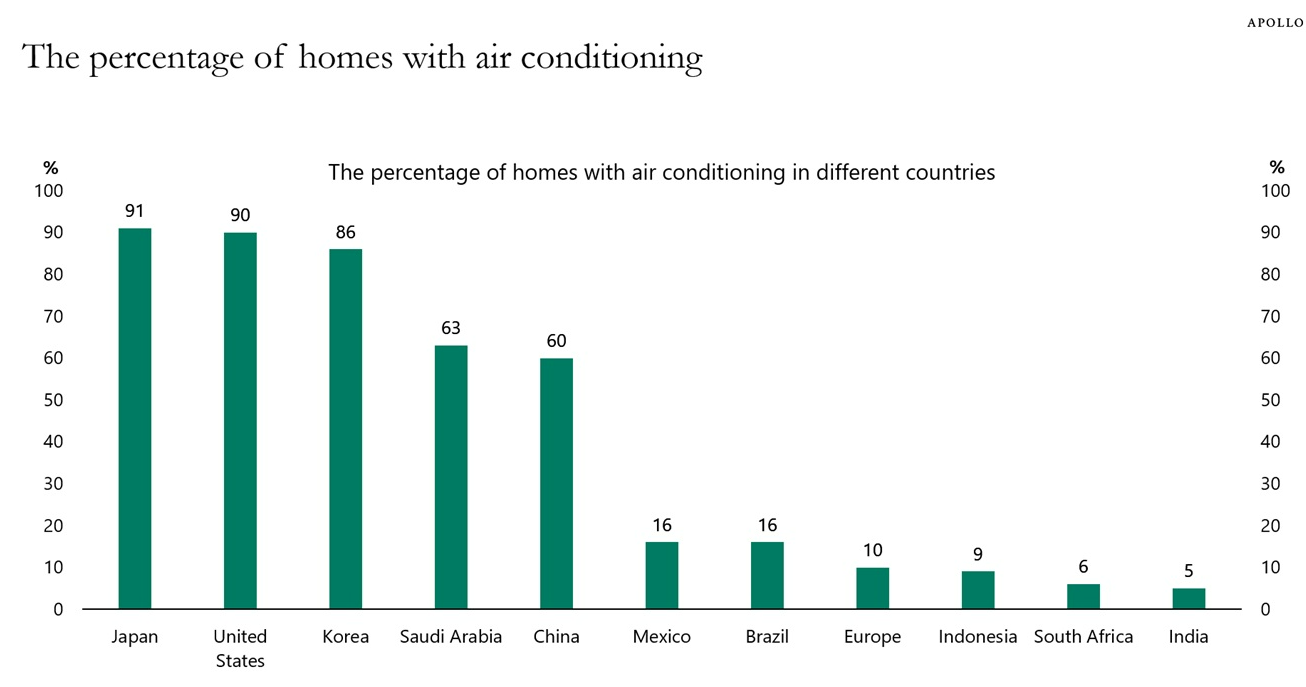Mario Draghi, the former Jerome Powell of the European Union, was tasked with writing a detailed report on the economic competitiveness (or lack thereof) in Europe.
His findings are striking.
Here are some facts and figures that stood out:
Across different metrics, a wide gap in GDP has opened up between the EU and the US, driven mainly by a more pronounced slowdown in productivity growth in Europe. Europe’s households have paid the price in foregone living standards. On a per capita basis, real disposable income has grown almost twice as much in the US as in the EU since 2000.
Europe is stuck in a static industrial structure with few new companies rising up to disrupt existing industries or develop new growth engines. In fact, there is no EU company with a market capitalisation over EUR 100 billion that has been set up from scratch in the last fifty years, while all six US companies with a valuation above EUR 1 trillion have been created in this period.
The EU is entering the first period in its recent history in which growth will not be supported by rising populations. By 2040, the workforce is projected to shrink by close to 2 million workers each year.
EU companies still face electricity prices that are 2-3 times those in the US. Natural gas prices paid are 4-5 times higher.
Draghi offers some solutions for closing the competitiveness gap by reducing barriers to innovation, increasing investment in certain areas and establishing an education curriculum that facilitates technological breakthroughs.
Here’s one solution Draghi didn’t offer — more air conditioning.
The world is getting hotter.
Europe is the fastest-warming continent, with average temperatures rising at double the global average.
Look at this chart from Torsten Slok:
I knew AC wasn’t a big deal in Europe but never realized only 10% of homes had it.
You might laugh at this suggestion, but there is evidence that shows air conditioning is one of the most important inventions of the past 100 years.
Singapore’s founding father, Lew Kuan Yew, credited air conditioning as one of the main drivers that turned a small island nation with few natural resources into one of the most prosperous countries in the world:
Air conditioning was a most important invention for us, perhaps one of the signal inventions of history. It changed the nature of civilization by making development possible in the tropics.
Without air conditioning you can work only in the cool early-morning hours or at dusk. The first thing I did upon becoming prime minister was to install air conditioners in buildings where the civil service worked. This was key to public efficiency.
When air conditioning first became widespread in the United States in the 1950s and 1960s, a study found that federal employees saw their productivity rise 24% when they moved to an office with AC.
Steven Johnson wrote an entire chapter in his book, How We Got to Now, about how the advent of cold — ice, refrigeration and AC — changed the course of history.
There is a reason many of the world’s largest cities – London, Paris, New York, Tokyo — were created in moderate climates. But now the growth is happening in warmer areas. Johnson explains:
The fastest growing megacities are predominantly in tropical climate: Chennai, Bangkok, Manila, Jakarta, Karachi, Lagos, Dubai, Rio de Janeiro.
The ability to control temperature and humidity in office buildings, stores, and wealthier homes allowed these urban centers to attract an economic base that has catapulted them to megacity status.
What we are seeing is arguably the largest mass migration in human history, and the first to be triggered by a home appliance.
Air conditioning changed voter patterns in the United States by allowing more people to migrate south. In the coming years, it will likely save lives as certain areas of the planet get hotter and hotter.
I can’t imagine life without AC and am unsure how people managed in the pre-AC era.
The AC unit in my office building invariably goes out for a couple of weeks every summer. It makes my office dreadfully uncomfortable to work in.
If temperatures continue to rise, air conditioning will likely be one of the most important appliances in the 21st century too.
Michael and I spoke about air conditioning and much more on this week’s Animal Spirits video:
Subscribe to The Compound so you never miss an episode.
Further Reading:
The Air Conditioning Effect
Now here’s what I’ve been reading lately:
- Tier drop (Downtown Josh Brown)
- How to not be fooled by viral charts (Noahpinion)
- No regrets (Humble Dollar)
- Tell good stories (Young Money)
- Resignation letter (Reaction Wheel)
- The worst advice for graduates (Freedom Day)
- An oral history of Everybody Wants Some (GQ)
Books:
